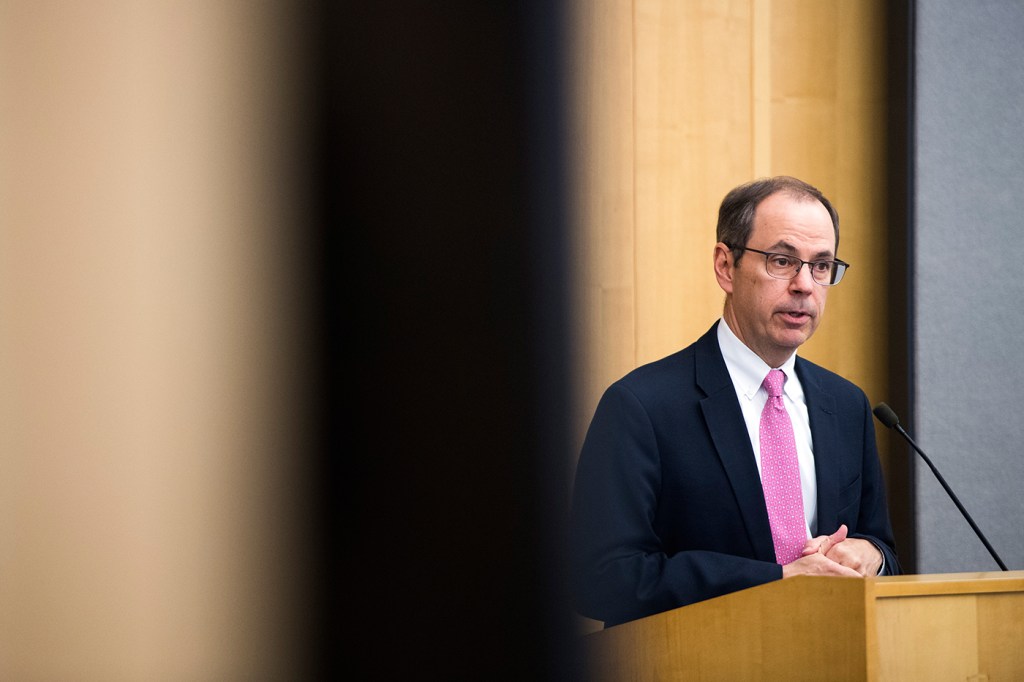Financial report shows university is ‘poised for investing in our future’

Northeastern is “poised for investing in our future,” Tom Nedell, university treasurer and senior vice president for finance, told members of the Faculty Senate on Wednesday.
Nedell, who summarized Northeastern’s fiscal growth in the past decade, credited the strength of the university’s “operating model” as the chief driver of its current “financial strength.” That operating model includes a robust portfolio of diverse revenue streams, liquid assets, and mindful spending, he explained.
“We’re financially strong, and in a much different place than we were 10 or 11 years ago,” Nedell said, referring to the start of President Joseph E. Aoun’s tenure. The university’s budgeting practices also resulted in an updated Moody’s Investors Service bond rating during the last academic year.
In January, Moody’s revised Northeastern’s A2 bond rating from a “stable” to “positive” outlook, a forecast that was more favorable than much of the higher education sector nationally and reflected a range of university strengths and strategic investments. Out of 499 institutions rated by Moody’s, only 15 were designated as having a positive outlook.
Nedell’s presentation also included a brief overview of the university endowment strategy. He explained that while the university does not have any direct investments in energy, about 10 percent of the $795 million endowment is invested in energy through blended funds.
“Historically speaking, you’d be at a disadvantage if you excluded an entire sector—such as energy—from your investment portfolio,” Nedell responded. “We have a fiduciary responsibility to maximize our investment returns and mitigate risk.”
Furthermore, Nedell emphasized the university’s commitment to environmental sustainability, noting the university’s decision to direct $25 million of its endowment to investments with a focus on sustainability, including clean energy, renewables, green building, and sustainable water and agriculture. The university indicated in July 2016 that it would complete that goal in five years. To date, less than two years later, it already has invested $18 million into sustainable funds.
In other business Wednesday, members of the Faculty Senate unanimously approved three resolutions, including two on changing the names of doctoral degree programs and one to establish a Master of Science in Environmental Science and Policy.





